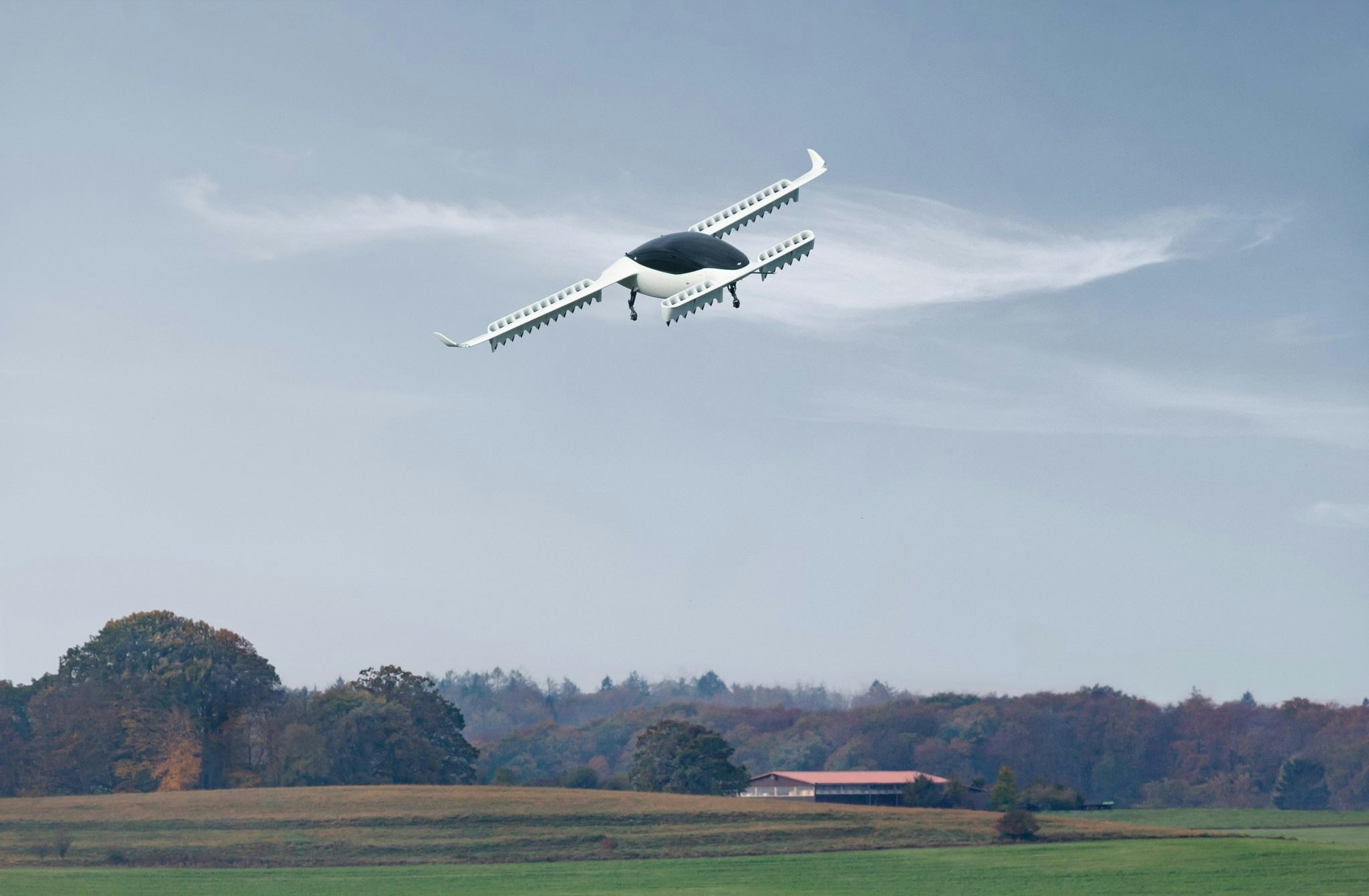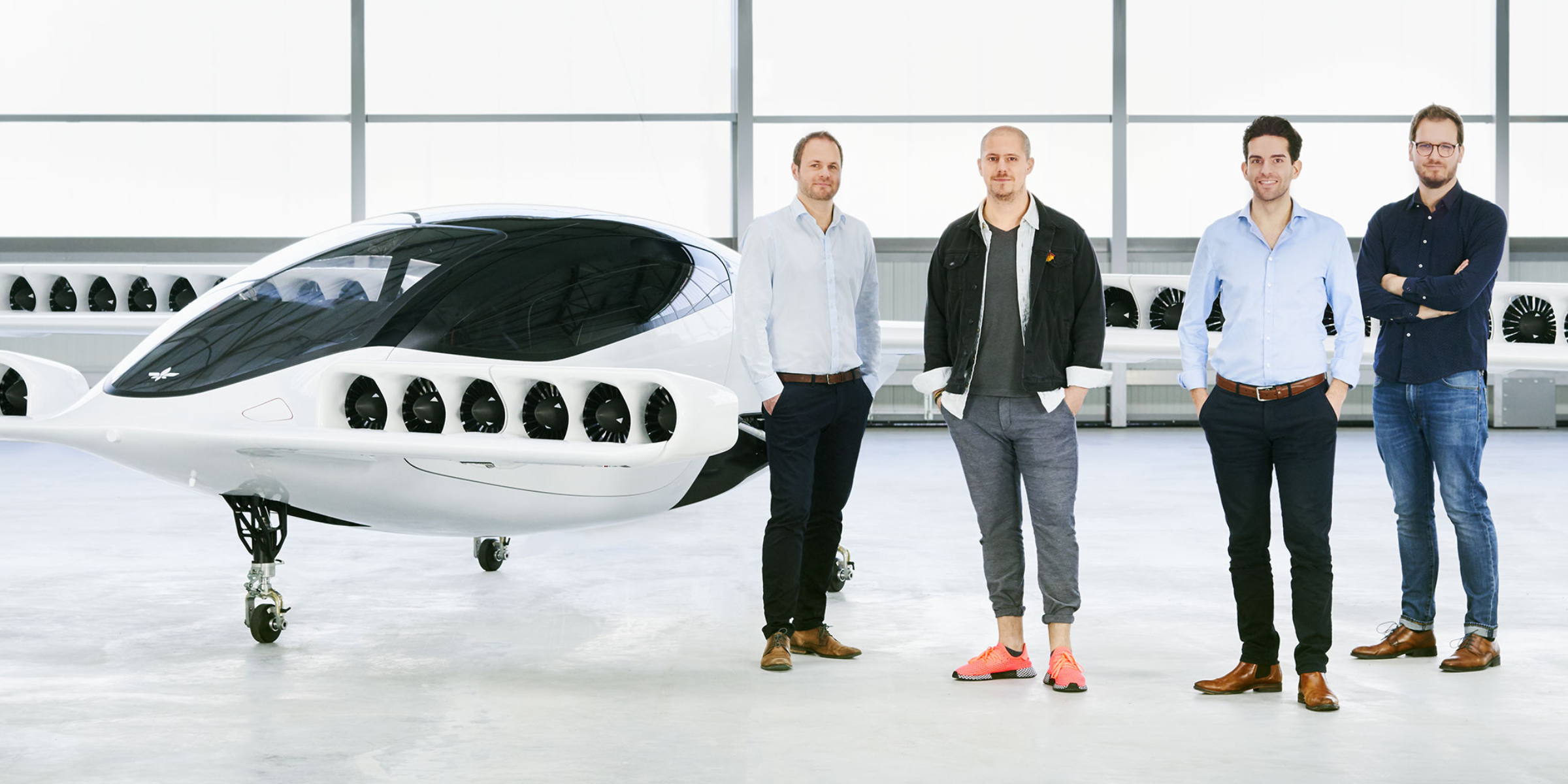Lilium, the German flying taxi startup, today announced plans to list on Nasdaq via a reverse merger with Qell Acquisition Corp, a special acquisition company run by Barry Engle, former president of General Motors North America. The deal will raise $830m for the company and value the business at $3.3bn.
Lilium also revealed a new 7-seater electrical aircraft, which it will use to build out a regional network of inter-city flight services. Lilium had been developing a 5-seater aircraft but abandoned that model after a prototype was destroyed in an electrical fire last year.
Daniel Weigand, cofounder and CEO of Lilium, told Sifted that the company had been developing the 7-seater jet in stealth mode for more than 2 years.
"I know a lot of people were wondering what these guys are doing. We kept that really close. We wanted to speak about the 7-seater only once we were sufficiently advanced in the program," he said.
The new 7-seater model has a projected cruise speed of 175 mph at 10,000 feet and a range of 155+ miles, including reserves — longer than many of the competitors such as Volocopter who are aiming at the market for shorter intra-city hops. A first prototype is expected to be ready in 2022. Last year Lilium has received CRI-A01 certification basis from EASA for the 7-seater jet, meaning that they have a clear understanding of the requirements they will have to meet for certification — although there is still a long road to actual certification itself.
Engle told Sifted that he was excited by the size of the flying taxi market — Roland Berger, the consultancy, expects urban air mobility to generate revenues of $1bn by 2030, growing to more than $90bn by 2050. However, he said "we have entered into this with our eyes open" undertaking 6 months of due diligence with Lilium before finalising the deal. Aerospace experts hired by Qell have estimated that Lilium would be able to get regulatory clearance to fly by 2024.
The first network of 14 vertiports is to be built in Florida, together with partners Ferrovial and Tavistock Development Company. Lilium said it was in talks to build a network of 10 vertiports across Europe.
The company plans to launch commercial operations in 2024.
“Our vision is to create a sustainable and accessible mode of high-speed travel and bring this to every community. Transport infrastructure is broken. It is costly in personal time, space consumption and carbon emissions,” said Wiegand.
Lilium has raised money at a fast pace over the last few years, most recently a $35m round from Baillie Gifford last June. This latest $830m — $380m of which comes from Engle’s Qell, and $450m from private investments in public equity — will be spent on getting to commercial launch. This includes setting up a serial product facility in Germany and completing the certification process with aviation authorities.
Fundraising is rising to fever pitch among the electric flying taxi companies. California-based Joby, which is Lilium's nearest competitor in terms of technology, raised $1.6bn in a reverse merger in February, valuing the business at $6.6bn. German Volocopter raised €200m in additional capital in a Series D funding earlier this month.


